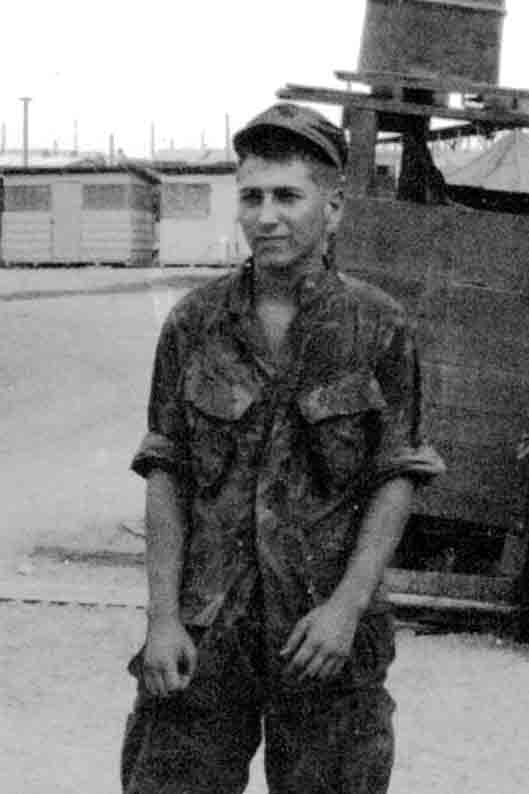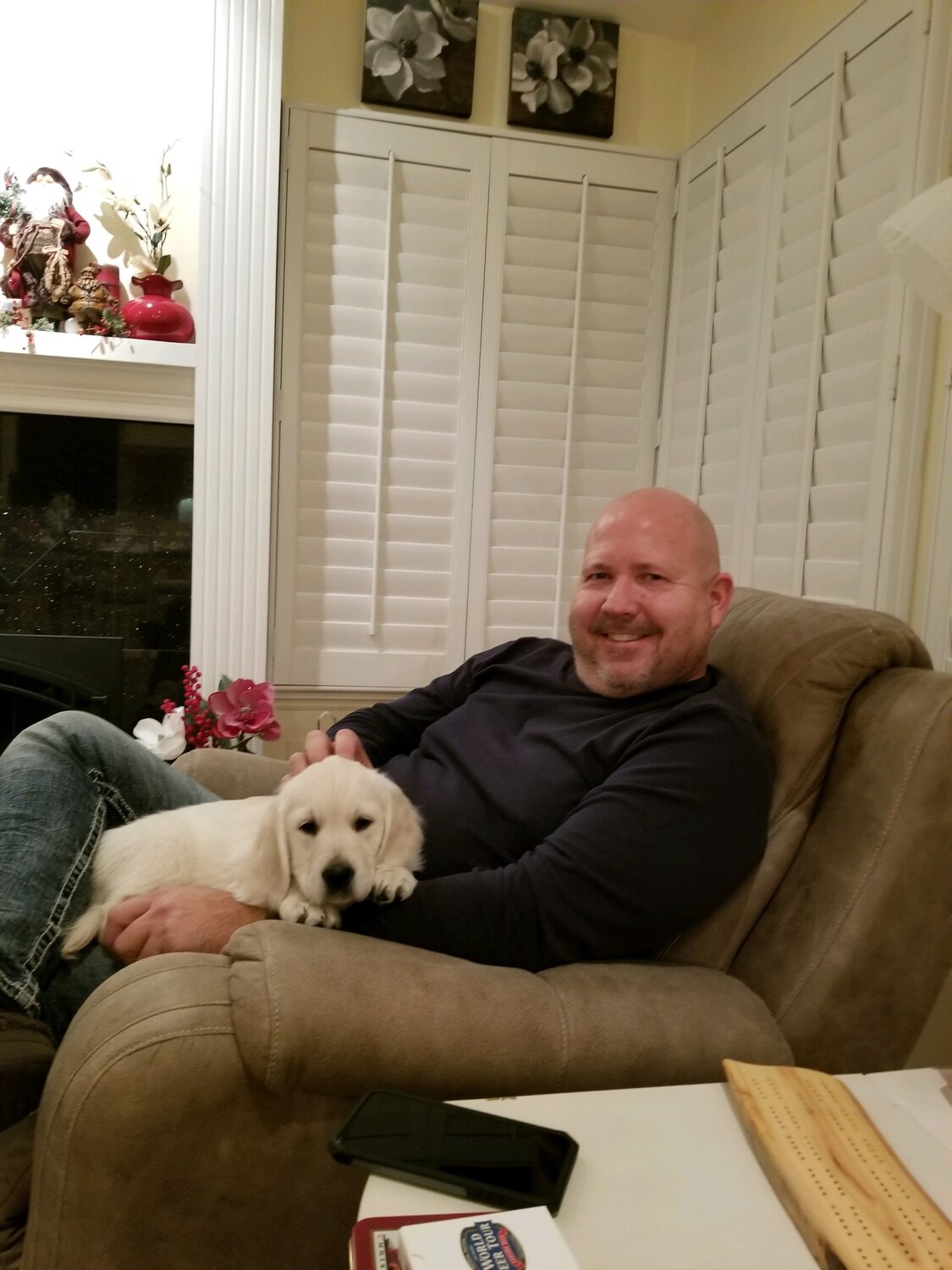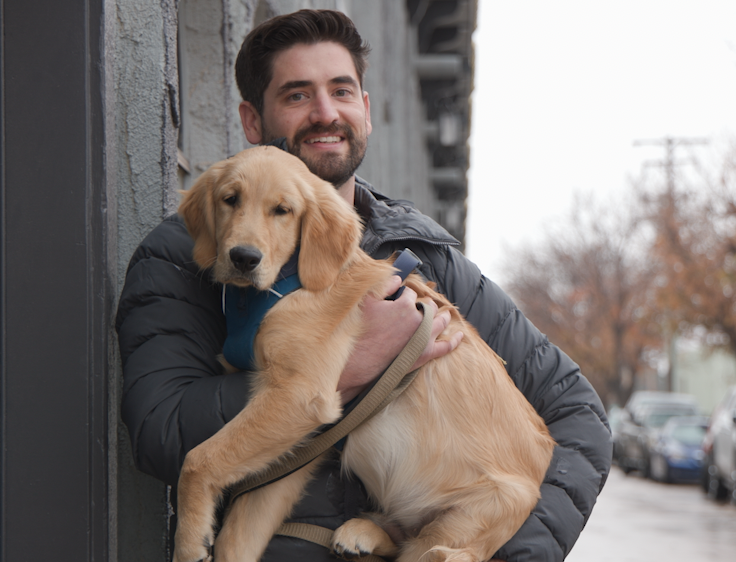Puppies breed new life for veterans with PTSD

DENVER — On the day his grandson turned two, Frank Griggs began hiding from the world in his basement and rarely left that space. Griggs, 73, had been coping with post-traumatic stress disorder, or PTSD, for decades. On this day, his PTSD peaked.
Serving as a U.S. Marine in the Vietnam War, Griggs was caught in a mortar attack in the middle of the jungle. That day, his 19th birthday, he lost four fellow Marines, including one who had left behind a two-year-old son.
“All he ever wanted to do was just go home and be with his son,” Griggs said. Without any children of his own, “I started living with survivor's guilt, wondering why I didn't die.”
Celebrating his grandson’s second birthday brought back the memory of the mortar attack and Griggs knew he needed help – and a life change.

Hero’s Puppy for Life founder Frank Griggs in 1969 during his deployment to Vietnam with the U.S. Marine Corps. Griggs suffered from PTSD for decades – and founded the organization to help other veterans like himself. He trains golden retrievers using a no-harm, no-fear based training model. Photo: Courtesy Frank Griggs
Griggs is the founder of Hero’s Puppy for Life, a Colorado-based nonprofit organization that pairs Golden Retriever puppies with U.S. military veterans suffering from PTSD.
“The goal is to bring individuals back to a life that they had before their trauma occurred,” said Griggs.
About 23% of veterans who get care from the Veterans Administration suffer from lifetime PTSD, , according to the VA. The psychiatric disorder often lasts long after a traumatic event or series of events occur. Symptoms can include flashbacks and nightmares, distressing thoughts, social isolation, and irritability.
Griggs started the organization in 2015 while undergoing treatment for his own PTSD.
When he saw the cost for a trained service dog was upwards of $25,000, Griggs went back to school and trained to be an advanced canine training professional and behavior specialist.
The first dog he trained was his own dog, Bo, now 8, who he jokingly calls the “dogfather” of the organization.
The dogs train for nine months with their owners and must accompany their owners nearly everywhere to foment a strong bond. For the first four months, the vets and puppies go through basic canine training and socialization. During the last few months, the dogs get PTSD task-specific training.
“In most cases the dogs know well before we do when something's going on,” Griggs said. The dogs are trained to alert their owner of a PTSD flare up. In some cases, the dogs will bark, put their paws on their owner’s lap, or lead their owner out of a room.
Griggs says he trains Golden Retrievers, specifically English Cream Golden Retrievers because of their temperament.
“They're very forgiving, very loving, and they want to please,” he said.
The impact is evident to Griggs.
“I had one veteran where it took four months for that individual to go into a Home Depot,” he said. “She called me the day she went in, and she was like, ‘I don't know why I never went in before. Everybody was just so kind. Everybody loved my dog.’”
Griggs said that’s why the dogs are life-changing. “The puppy becomes the tool to help them start coming back into society again.”

Matthew McLaurin, who served 25 years in the U.S. Navy as an aviator and test pilot, with his service dog Naomi. “Naomi is like the ability to have a breath of fresh air for me in my life,” McLaurin says. “I have that peace and that calm because I know that she's there.” Photo: Courtesy Matthew McLaurin
Last weekend, the organization, which became a nonprofit in 2016, graduated its 95th puppy. Grigg’s is currently training its 100th dog --,the first deaf dog to be part of the program.
Griggs does all the training himself free of charge -and without taking home a paycheck.
“We can't help everybody in the world, but we can help those who've served our country and our communities,” he said.

Michael Lucky served in the U.S. Marine Corps for 8 years – his most recent deployment was to Afghanistan from 2019-2020. Lucky was paired with Timber five weeks ago. “I know he's a task-trained service animal, but it gives me a task to be with him. And it helps me out to almost serve him and be there for him.” Photo: Andrea Kramar, RMPBS
“What I'm most proud of is the fact that I get to see people's lives change,” he said.
“If somebody were to tell me now, ‘What was the reason why you survived?’ I would say this is the reason why.”
Today, Griggs still thinks about his former Marine Corps members who passed away.
“I want those four guys [who died in Vietnam] to know that there was a good reason why and that there was a purpose,” he says. “And that means more to me than anything else in the world, is that they didn't die in vain.”
____
You can learn more about Hero’s Puppy for Life here.
Andrea Kramar is the investigative multimedia journalist at RMPBS. You can reach her at andreakramar@rmpbs.org.
Julio Sandoval is senior photojournalist at RMPBS. You can reach him at juliosandoval@rmpbs.org.
